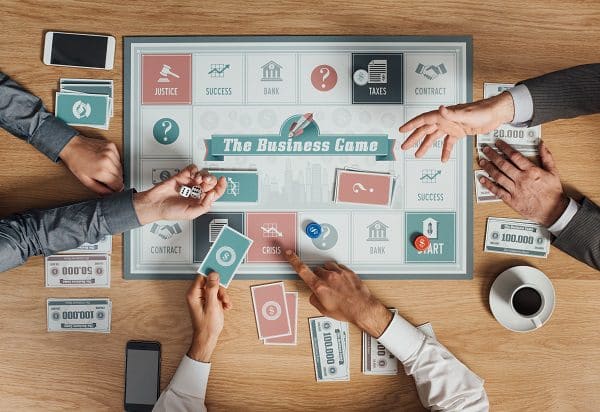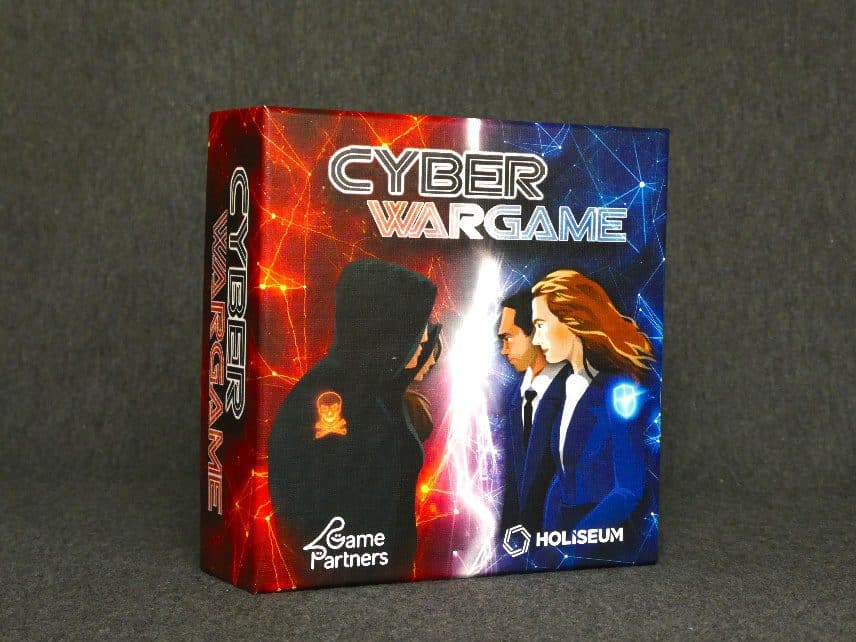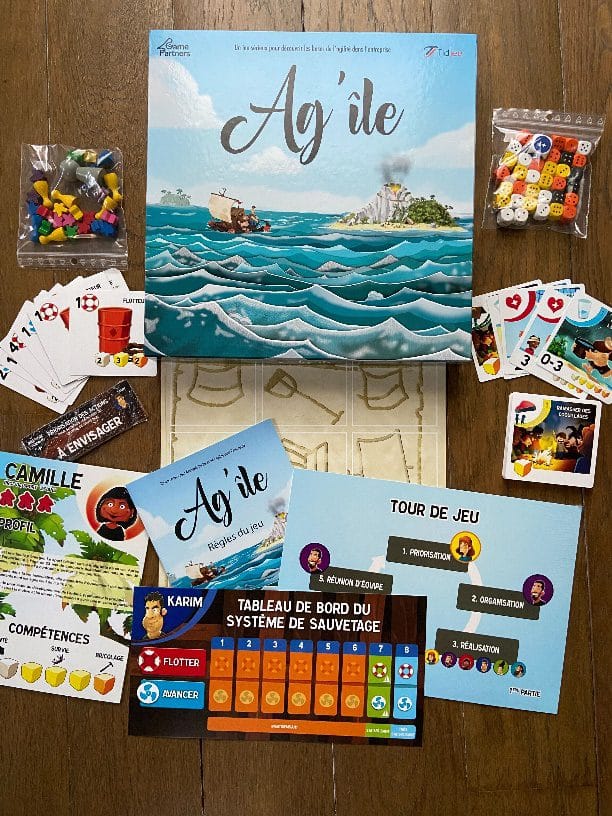The use of educational games in face-to-face training courses is becoming increasingly popular! This is largely due to the need for greater proximity and interactivity with the professional environment. But this success can also be explained by a more diversified offer and an increase in quality. We take a closer look with game designer Arnaud Barrès.

On the one hand, the exponential development of digital working and communication tools, accentuated by teleworking. At the same time, serious games, or digital educational games, have also been widely used in adult training, but mainly on their own and remotely.
On the other hand, the last few years have seen a revival in the use of educational games, particularly board games, in face-to-face training. This trend has been further strengthened by the health crisis.
But what are the reasons for this success? And how do educational games contribute to the success of training courses?
The benefits of educational games
Educational games have 4 common characteristics which are all assets for facilitating learning during face-to-face training.
The 4 characteristics of classroom games
- They allow you to simulate.
- They are thought-provoking.
- They are based on interaction and cooperation.
- They arouse emotions.

In particular, they make it easier for participants to get involved in the learning process and encourage memorisation.
Other determining factors are conviviality and pleasure. As well as learning, participants leave the course happy to have had a good time with their colleagues!
These are all characteristics that distinguish them from digital games. Digital games, on the other hand, offer an individual and solitary experience, fuelled by predefined and often deceptively interactive content.
The different forms of face-to-face games
Face-to-face educational games generally take the form of board games (such as Monopoly) or card games. They can be designed in advance, in the same way as board games. They can also take more utilitarian forms, such as tools to accompany creativity sessions or workshops. From simple Post-It notes to illustrated cards, quizzes, games of roleThe range of educational games that can be used in the classroom is vast!
Educational games: a clear improvement in quality!
The quantity and quality of games for the general public have improved remarkably over the last 20 years, in terms of the inventiveness of game mechanics, illustrations and design. This great creativity and the dynamism of publishers mean that gamers have access to a constantly renewed range of games. There are around 500 new releases every year! Some of the biggest successes of recent years include: 7 Wonders, Azul, King Domino and Settlers of Catan.
Initially lagging behind in terms of the inventiveness of game rules and design, educational games have since caught up. As a result, some publishers of "serious games" are approaching the quality of games for the general public. As a result, the educational games used in training now have carefully thought-out designs. Their game mechanics are also innovative and entirely designed to serve the educational content.
Topics tailored to companies' training needs
The themes that can be covered by educational games are almost infinite: CSRIn fact, there is always a way to "stage" the subject of the training in a well thought-out, well-oiled game mechanic. This is the job of the game designer.
Nevertheless, certain topics are now unavoidable. They form part of the training challenges faced by the majority of companies and public bodies. This is the case, for example, of cyber security and Agility.
Cybersecurity
The Cyber Wargame, for example, has sold more than 2,000 copies. Dozens of companies and higher education establishments use this game to run awareness-raising events and training courses on the subject of cyber security. It also means that training courses can be open to all employees, not just specialists.
This card game pits two teams against each other: the cyber attackers against the cyber defenders. The attackers seek to compromise the organisation's assets by exploiting security holes using cyber attacks targeted. The latter seek to secure these assets with their cyber defences. For example, an unsecured WiFi connection needs to be quickly protected by a virtual private network or risk being hacked. The combination of competition and collaboration gets participants involved. All the more so as they are entitled to their revenge! Reversing roles in a 2th part will enable them to discover both sides of the subject.

The expected result?
1/ Give players a better understanding of the objectives and methods of cyber attackers.
2/ Make them aware of the role they can play on a daily basis to make their organisations safer.
Agility
MAIF financed the creation of a tailor-made educational game to raise awareness and train its 2,000 support function employees in Agile approaches.
In this Ag'île game (already a pun in the title!), players find themselves on a desert island, in charge of a holiday camp that has been stranded by accident. They'll have to learn to think as a team and work together to set up a survival system that meets the children's basic needs. For example, feeding and sheltering them.

First, we need to prioritise a series of actions. But on what criteria? On the basis of their ability to carry them out, on the one hand, and the expected benefits, on the other. The participants must then collectively manage the implementation of these actions and deal with the vagaries of success and failure as the dice are thrown.
Then comes the "campfire" ritual, which symbolises the "customer demo" in Agile vocabulary. At this stage, they are confronted with the children's opinions, predetermined by the game. In this way, they receive feedback on the quality of the services offered.
Finally, there is a team meeting, known as a "retro" in Agile vocabulary, to discuss ways of operating more efficiently.
Thanks to illustrations and situation scenarios that adopt a humorous tone, the players are placed in a smiling atmosphere. Throughout the game, they are also under constant pressure to achieve results. This transposition of reality enables the players to use methods and tools that show them first-hand how valuable they can be in managing a "real" project.
A wide range of educational games in ORSYS training courses
ORSYS training courses incorporate different types of educational games.
The Cyber Wargame supports in-company cybersecurity training courses.
ORSYS also offers a new Agility training course based on the Ag'île game.
Training Spelling through games is aimed at revising the basics of grammar and spelling. It is based on Les nababs de l'orthographe, a casino-themed game.
In the company of Arsène Lupin, the formation Using games to improve written communication in French invites participants to solve a series of little riddles...
In addition, escape games aim to develop collective intelligence and stress management. These can be found in several ORSYS training courses:
- Developing collaboration within your team, unleashing collective intelligence
- Stress management for better collaboration
- Knowing how to convince and make people want to collaborate
Also gamified (quizzes, role-playing games, etc.), training Game-based learning, designing and running training courses using games is aimed at trainers and educational engineers. The aim? To teach them how to design game mechanics to better engage participants in their training courses.
Making training even more fun, engaging and effective... Educational games are winning the bet hands down. Thanks to their innovative game mechanics and design, so-called board games are even getting their revenge in training! They are booming, and will increasingly find their way onto trainers' tables.


